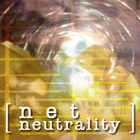
|
|||||||||||||
UN NAMES 10 MOST UNDER-REPORTED STORIES FOR 2006 Every year, the United Nations publishes a list of the 10 most serious stories most overlooked by global press. Developing nations, whose situations are often misunderstood or dismissed by news media, as too complicated, intractable, or of marginal relevance, take the spotlight this year. [Full Story] PRESS FREEDOM IS EVERYONE'S FREEDOM The freedom of the press is the freedom of the American people. Not its guarantor, not a metaphorical representation of freedom as an idea, not even merely a mainstay of a free system. A free and independent press is American liberty at work, building and defending itself against the slide toward secret or arbitrary exercise of power, as conceived within or beyond the legal process. [Full Story] CHINA PLANS "SMOKELESS WAR" AGAINST PRESS, DISSIDENTS China's president Hu Jintao has reportedly called for an intensive crackdown on media liberties. While China's government has sought to project an image of a more market-oriented, open system, it continues to forbid basic press freedoms and still persecutes journalists at an alarming rate. [Full Story]
|
LA WEB ABIERTA ES UNA FUERZA A FAVOR DE LA DEMOCRACIA Y EL GOBIERNO TRANSPARENTE, AHORA SE VE AMENAZADA POR INTERESES COMERCIALES 10 agosto 2007 El concepto de la 'neutralidad de internet' se refiere al estado actual en los países libres, donde aquellos que controlan la infraestructura física de internet no pueden manipular ni controlar el contenido de los que publican contenido en esa red. Es un ingrediente elemental para garantizar la libertad de información que hace que la web sea tan útil y tan valiosa para la sociedad libre y abierta. Pero la Cámara de Representantes de Estados Unidos, el año pasado, votó a favor de acabar con esa 'neutralidad', o libertad de acceso, con la proposición COPE (Communications Opportunity Promotion and Enhancement). El lenguaje de COPE permitiría las grandes empresas de telecomunicaciones controlar el acceso a contenido específico que ahora se ve libremente, aun en los casos donde el proveedor de contenido no cobra ni tiene ninguna estratificación de acceso. COPE permitiría que cobren a los proveedores de contenido por la 'visibilidad', o sea, por la velocidad de banda y por dirigir a los usuarios deliberadamente a sus servidores. El sistema que propone no favorecería ni la calidad ni la profundidad de investigación ni de información, sino simplemente la riqueza de las empresas productoras multinacionales más ricas. Podrían verse relegados al margen los centros de investigación más importantes, universidades, bienes públicos como sitios del gobierno o de la ONU sobre la salud, ONG con fines caritativos y, antes que nadie, el periodista independiente sin respaldo mediático masivo. Las voces independientes se extinguirían bajo la marea de los grandes poderes mediáticos; los 'blogger' ya no podrían competir ni en relevancia de búsqueda ni en calidad de contenido con Yahoo! ni MSN, que podrían (se imagina) pagar con facilidad las tarifas extras de 'banda' que impondrían las telecom; la información se vería degradada por un efecto mainstreaming, donde todos los sitios más visibles utilizan el mismo lenguaje, derivado de las mismas fuentes, para alimentar la misma clase de contenido, marginando los materiales más analíticos o académicos. El internet se convertiría en propiedad privada de los proveedores de acceso (ISP) y no de los usuarios, sean los creadores de contenido o el público que lo consume. El senador Joseph Biden (D-DE) ha señalado en audiencias ante el Senado que las 'compañías Bell' —las telecom de Estados Unidos— "literamente no tuvieron nada que ver" con la creación del internet. AT&T destaca el logro especial de haber negado participar por contrato en el proyecto de creación del internet. Y ya cobran dos veces el mismo servicio: los consumidores y los proveedores de contenido tienen que pagar tarifas de acceso, sólo para tener una conección y poder trabajar en línea. Y la web ha sido la parte más lucrativa del sector telecom en los últimos años. Ahora buscan precisamente cobrar tres veces un mismo servicio, y eso con el fin explícito de limitar y degradar la información disponible en internet, junto con la libertad de aprovecharla. Quieren negar a los buscadores manejar el problema complejo de las búsquedas y negar a los creativos el proyecto de crear contenido. El efecto inmediato de cualquier legislación que permita estratificar el internet por acceso a banda, o visibilidad pagada, sería meter la prensa libre en un cuello de botella. La Primera Enmienda a la Constitución de Estados Unidos dice expresamente que "El Congreso no hará ninguna ley [...] que limitara la libertad de expresión, o de la prensa..." Cualquier ley que permita restringir la libertad de acceso del público al contenido que busca, al conecdtarse a internet, sería una limitación directa de la libertad de expresión y de la prensa. El internet ha permitido que la 'prensa' —o sea, todo medio a través del cual se distribuya alguna información a cualquier público— aumente su libertad hasta niveles antes inconcebibles. Ha beneficiado a todos los partícipes, ha facilitado que el ciudadano medio se involucre en el proceso político, ha cosechado ganancias antes impensables para el negocio, ha creado una economía digital nueva, donde el libre movimiento de la información es un componente fundacional. Crear un cuello de botella donde ahora hay una red global abierta, dividir la información entre los (minoritarios) servicios de banda principal de prepago y la inmensa mayoría que tendrían que usar la banda marginal, lenta, significa comprimir la vasta cultura mediática digital para encerrarla en un espacio que no puede adecuarse a sus necesidades. La neutralidad de internet es la única manera que tenemos para saber que no están jugando sucio los políticos que a nosotros nos parecen sospechosos, la única manera que tenemos de asegurarnos de que la investigación que interese a todos, pero que no goza de grandes recursos financieros para darse a conocer, esté disponible cuando pueda servir. Es la única manera que tenemos de asegurarnos de que la información que no quepa en la 'historia oficial' llegue a la superficie de la cultura y haga el papel que le toque en la esfera pública. En suma, el internet sin neutralidad sería poco diferente del servicio televisivo de cable: sólo que tendría un paisaje visual más limitado y menos ritmo. Y cabe notar que el cable padece un fallo mortal: todo está puesto por pago, dejando en casi cero el espacio para contenido con fines humanitarios o cívicos. Una sociedad libre necesita que esa información exista, y la nuestra ha logrado crear la tecnología para hacerlo tanto masiva como económicamente. Tanto, que nos hemos adaptado a lo digital de tal manera que ahora internet se ha hecho imprescindible para poder gozar de tales flujos de información libre y global. [s]
ENGLISH VERSION: The concept of 'net neutrality' refers to the current state of affairs in the free democracies of the world, where those who control the physical infrastructure of the Internet are not allowed to police its content or to charge for provider-user access. It is a vital ingredient in the make-up of the Internet, because it guarantees the freedom of information that makes the web so useful to free society and so valuable to those who do well what works in that open environment. [Full Story]
BACKGROUND: Journalist Bill Moyers explains how Net Neutrality is really about stipulating for all media regulations an 'Equality of Access provision' like that imposed on AT&T after "Free Press and SavetheInternet.com orchestrated 800 organizations, a million and a half petitions... a top-shelf communications campaign. Who would have imagined that sitting together in the same democratic broadband pew would be the Christian Coalition, Gun-owners of America, Common Cause and MoveOn.org?" [Go to video] NET NEUTRALITY ACT: SEN. DORGAN EXPLAINS LEGISLATION TO PRESERVE THE OPEN INTERNET S.215, the Internet Freedom Preservation Act, sponsored by Sen. Byron Dorgan (D-ND) and Sen. Olympia Snowe (R-ME) seeks to ensure the openness of the internet is protected against attempts by major telecommunications providers to segregate internet content and to charge for visibility. Sen. Dorgan explains how such business strategies would have a chilling effect on free expression and innovation. [Go to video] DEATH OF THE INTERNET: WHY NET NEUTRALITY IS VITAL TO THE INFORMATION SOCIETY Lays out the rudimentary principles of NET NEUTRALITY, the concept which has governed the open, global internet until now, wherein no network managers can control what content you are able to view over the internet; that standard is now threatened by major phone and cable providers (ISPs) and by legislation passed by the House in 2006. [Go to video] 'COPE' ACT FAVORS TELECOM STEERING OF WEB TRAFFIC The US House of Representatives passes Communications Opportunity Promotion and Enhancement Act (COPE) in 2006. Legislation, if it were to become law, would allow internet service providers to control what content their customers would be allowed to view online, which websites they could use, potentially what type of information they would be allowed to send or to publish. It has been seen by many as the beginning of the end of the Internet... [Go to video] 'OBJECTIVELY VERIFIABLE TRUTH NOW SUSPECT' The foundation of a free society is a press with the freedom to criticize instruments of power and influence and to reveal wrongdoing as it actually takes place. War is not a sufficient reason to institute a system of broad censorship criteria or to rein in the news media, as if they posed a direct threat to the wellbeing of the nation. But increasingly, it appears that American news media are intolerant of facts as such, waiting for members of the government themselves to come forward with complaints. [Full Story] AT&T SUED FOR VIOLATING LAW IN NSA DOMESTIC SPY PROGRAM AT&T was once the nation's telecommunications monopoly, and abuses there led to the break-up of the Bell monopoly and the regulation of telecoms, with the intent of encouraging competition and achieving the goal of forcing providers to serve the customers first. Now, the Electronic Frontier Foundation has filed a lawsuit alleging that the telecommunications giant has violated federal law by assisting the government in spying on innocent Americans without any court authorization. [Full Story] GOOGLE TO COLLABORATE IN CENSORING INFORMATION DELIVERED TO CHINESE USERS The premier internet search engine Google has launched a new Chinese service, under the domain Google.cn, which it will voluntarily censor in keeping with the mandates of Chinese authorities. The announcement came earlier this week, as the Davos trade talks opened and on the same day as China's government announced it was ordering the closing of a weekly newspaper known for publishing articles on topics the Chinese Communist party's propaganda office had banned or which included criticism of government policy. [Full Story]
| ||||||||||||
|
|||||||||||||
















